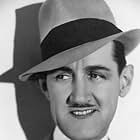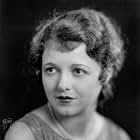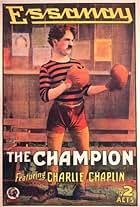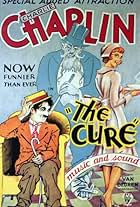Aggiungi una trama nella tua linguaJimmie Jump is a boarding house resident who receives a telegram telling him to pick up an important shipment at the train station at 2:30 p.m. on Wednesday. No good deed goes unpunished, an... Leggi tuttoJimmie Jump is a boarding house resident who receives a telegram telling him to pick up an important shipment at the train station at 2:30 p.m. on Wednesday. No good deed goes unpunished, and Jimmie has a whole lot of trouble getting to the depot.Jimmie Jump is a boarding house resident who receives a telegram telling him to pick up an important shipment at the train station at 2:30 p.m. on Wednesday. No good deed goes unpunished, and Jimmie has a whole lot of trouble getting to the depot.
Janet Gaynor
- Undetermined Secondary Role
- (non citato nei titoli originali)
'Tonnage' Martin Wolfkeil
- Garage Mechanic
- (as Martin Wolfkeil)
Olive Borden
- Undetermined Secondary Role
- (non citato nei titoli originali)
Helen Gilmore
- Boarding House Landlady
- (non citato nei titoli originali)
Martha Sleeper
- Boarding House Maid
- (non citato nei titoli originali)
Recensioni in evidenza
This amusing and resourceful short comedy has the kind of setup that suited its star Charley Chase quite well, and it also comes up with quite a few ideas that prolong a simple situation, building it up until it becomes quite funny. It's the kind of deceptively simple-looking comedy often found in its era, with a crazy slapstick scenario that tends to obscure the inventive ideas that went into it.
The setup has Chase receiving a telegram and racing off to meet a train, only to get his car stuck in the mud. The whole movie just plays off of this situation, relying on the assortment of gag ideas and on Chase's knack for drawing out a humorous predicament. Martin Wolfkeil gets a couple of good moments in his sequence, and the humorous underwater repair scene works particularly well.
A simple description of the action probably wouldn't make it sound as funny as it actually is. The 1920s automobiles also give it a pleasantly nostalgic feel now, making it very much a part of its era, and an entertaining part at that. For all its lack of pretense, this is a fun little movie to watch.
The setup has Chase receiving a telegram and racing off to meet a train, only to get his car stuck in the mud. The whole movie just plays off of this situation, relying on the assortment of gag ideas and on Chase's knack for drawing out a humorous predicament. Martin Wolfkeil gets a couple of good moments in his sequence, and the humorous underwater repair scene works particularly well.
A simple description of the action probably wouldn't make it sound as funny as it actually is. The 1920s automobiles also give it a pleasantly nostalgic feel now, making it very much a part of its era, and an entertaining part at that. For all its lack of pretense, this is a fun little movie to watch.
Some people love Charley Chase, others think he has been rightfully forgotten. Well, I'm on the pro-Charley side -- I think he's an underrated genius, and I was thrilled to be able to find this gem of a short on a newly released DVD. All Wet is a short little film with no real plot. It's just Charley trying in vain to get to the train station to pick up some puppies. But the film has a snappy pace and scads of unexpected, subtle little jokes. The scene in which Charley and a brawny piano-carrier push the car (almost) out of the mud is one of my favorite silent film scenes ever. This scene deserves to be a better-remembered classic.
All Wet represents 10 minutes or so of pure, undiluted Charley Chase, that is, 10 minutes of expertly constructed comedy based on frustration and embarrassment. Those emotions are at the heart of his work: Charley always seemed to be struggling to get somewhere or to achieve something that was forever beyond his grasp. He'd usually wind up in public places surrounded by unfriendly people, flustered, at a loss, and/or humiliated in his underwear. That's Charley Chase in a nutshell.
I've read conflicting things about All Wet: in an article about Chase in the old Film Fan Monthly magazine it was reported that this was originally a two-reel short, and that the second reel is missing. More recently I've heard that Charley didn't start making longer comedies until 1925, and that this film is complete in one reel. Either way, in its surviving form it's a complete entity with a beginning, a middle, and an end. The story begins at a boarding house. A telegram arrives for Mr. Jimmie Jump, as Charley's character was known in these early films. It's assumed to be bad news, so all of his fellow boarders gather around, ostensibly to show sympathetic support, but it's clear they're a pack of nosy busybodies. Charley plays the scene beautifully, striking melodramatic poses worthy of Edwin Booth. But when the news turns out to be good -- he's got an important package arriving at the train station -- Charley is wildly excited. He even punches out the crown of his own hat in his enthusiasm, while his fellow boarders look decidedly disappointed. Next, Charley must drive to the train station, and that's where the trouble starts, when his car gets stuck in deep mud.
I don't want to say too much about what follows, except that the sequence is a beautifully executed essay in frustration. At times I was reminded of Harold Lloyd's comedy Get Out and Get Uunder, which also involved car trouble, and at other times there were gags suggestive of Buster Keaton (i.e. the workman who casually hoists a piano onto his shoulder like Big Joe Roberts in One Week, or the sinking of the car itself into a very deep pothole, which suggests the infamous launch of Buster's Damfino). Still, Charley always managed to put his own personal stamp on his work. Even when he didn't receive directorial credit, Chase, like Stan Laurel, was a first-rate comedy director who knew precisely how best to line up shots, time his effects, and edit scenes for maximum impact. For example, watch the gag in this film when the laborer "helps" Charley by pushing his car out of the mud and into an even deeper, water-filled hole. The placement of the camera is everything: the viewer doesn't see the hole until the camera reveals it, after it's too late to save the car. In reality, the two men would've seen the hole easily, but the way the scene is composed and edited it comes as a surprise to them as well as to us. And this is followed by the comic high point, Charley's underwater repair job, where only his hands are sporadically visible as he signals to a helper which tool he needs next. This is a great sequence that can't be described, you have to see it.
Comic frustration isn't for all tastes. Some people like their comedians aggressive or at least assertive, and lose patience with scenarios based on mild mannered types faced with unending disaster. To each his own, of course, but for those who can appreciate the comedy of catastrophe, Charley Chase's All Wet deserves special mention alongside other classics of this special sub-genre, including Laurel & Hardy's Perfect Day and Harold Lloyd's Hot Water, comedies where things get off to a bad start and just keep getting worse. Life's like that sometimes, and it helps to laugh.
I've read conflicting things about All Wet: in an article about Chase in the old Film Fan Monthly magazine it was reported that this was originally a two-reel short, and that the second reel is missing. More recently I've heard that Charley didn't start making longer comedies until 1925, and that this film is complete in one reel. Either way, in its surviving form it's a complete entity with a beginning, a middle, and an end. The story begins at a boarding house. A telegram arrives for Mr. Jimmie Jump, as Charley's character was known in these early films. It's assumed to be bad news, so all of his fellow boarders gather around, ostensibly to show sympathetic support, but it's clear they're a pack of nosy busybodies. Charley plays the scene beautifully, striking melodramatic poses worthy of Edwin Booth. But when the news turns out to be good -- he's got an important package arriving at the train station -- Charley is wildly excited. He even punches out the crown of his own hat in his enthusiasm, while his fellow boarders look decidedly disappointed. Next, Charley must drive to the train station, and that's where the trouble starts, when his car gets stuck in deep mud.
I don't want to say too much about what follows, except that the sequence is a beautifully executed essay in frustration. At times I was reminded of Harold Lloyd's comedy Get Out and Get Uunder, which also involved car trouble, and at other times there were gags suggestive of Buster Keaton (i.e. the workman who casually hoists a piano onto his shoulder like Big Joe Roberts in One Week, or the sinking of the car itself into a very deep pothole, which suggests the infamous launch of Buster's Damfino). Still, Charley always managed to put his own personal stamp on his work. Even when he didn't receive directorial credit, Chase, like Stan Laurel, was a first-rate comedy director who knew precisely how best to line up shots, time his effects, and edit scenes for maximum impact. For example, watch the gag in this film when the laborer "helps" Charley by pushing his car out of the mud and into an even deeper, water-filled hole. The placement of the camera is everything: the viewer doesn't see the hole until the camera reveals it, after it's too late to save the car. In reality, the two men would've seen the hole easily, but the way the scene is composed and edited it comes as a surprise to them as well as to us. And this is followed by the comic high point, Charley's underwater repair job, where only his hands are sporadically visible as he signals to a helper which tool he needs next. This is a great sequence that can't be described, you have to see it.
Comic frustration isn't for all tastes. Some people like their comedians aggressive or at least assertive, and lose patience with scenarios based on mild mannered types faced with unending disaster. To each his own, of course, but for those who can appreciate the comedy of catastrophe, Charley Chase's All Wet deserves special mention alongside other classics of this special sub-genre, including Laurel & Hardy's Perfect Day and Harold Lloyd's Hot Water, comedies where things get off to a bad start and just keep getting worse. Life's like that sometimes, and it helps to laugh.
Jimmie
rough condition--blurred
stuck in mud--great sight gag
must have been awful film ing this one
My summary does NOT mean that "All Wet" is a bad film in the least. Instead, it's dirty...sloppy...wet dirty. This is because Jimmie Jump (Charley Chase) is on his way to meet a train and his car gets stuck in a huge mud puddle. And, try as he might, the problems just get worse and worse.
This film features some funny sight gags and the dirties and wettest working conditions imaginable. You really have to feel sorry for poor Charley in this one, as he's thoroughly soaked and muddy throughout the short.
So is it any good? Very much so...and rarely without laughs.
My summary does NOT mean that "All Wet" is a bad film in the least. Instead, it's dirty...sloppy...wet dirty. This is because Jimmie Jump (Charley Chase) is on his way to meet a train and his car gets stuck in a huge mud puddle. And, try as he might, the problems just get worse and worse.
This film features some funny sight gags and the dirties and wettest working conditions imaginable. You really have to feel sorry for poor Charley in this one, as he's thoroughly soaked and muddy throughout the short.
So is it any good? Very much so...and rarely without laughs.
Lo sapevi?
- ConnessioniReferenced in Fallen Arches (1933)
I più visti
Accedi per valutare e creare un elenco di titoli salvati per ottenere consigli personalizzati
Dettagli
- Data di uscita
- Paese di origine
- Lingue
- Celebre anche come
- Trempé jusqu'aux os
- Luoghi delle riprese
- Azienda produttrice
- Vedi altri crediti dell’azienda su IMDbPro
- Tempo di esecuzione10 minuti
- Colore
- Mix di suoni
- Proporzioni
- 1.33 : 1
Contribuisci a questa pagina
Suggerisci una modifica o aggiungi i contenuti mancanti






















